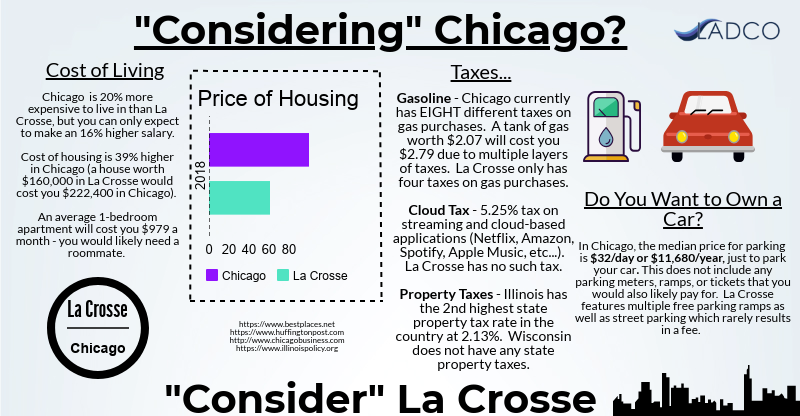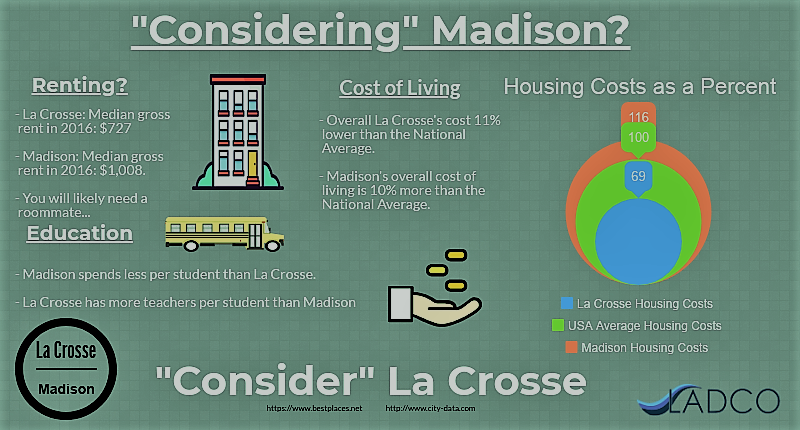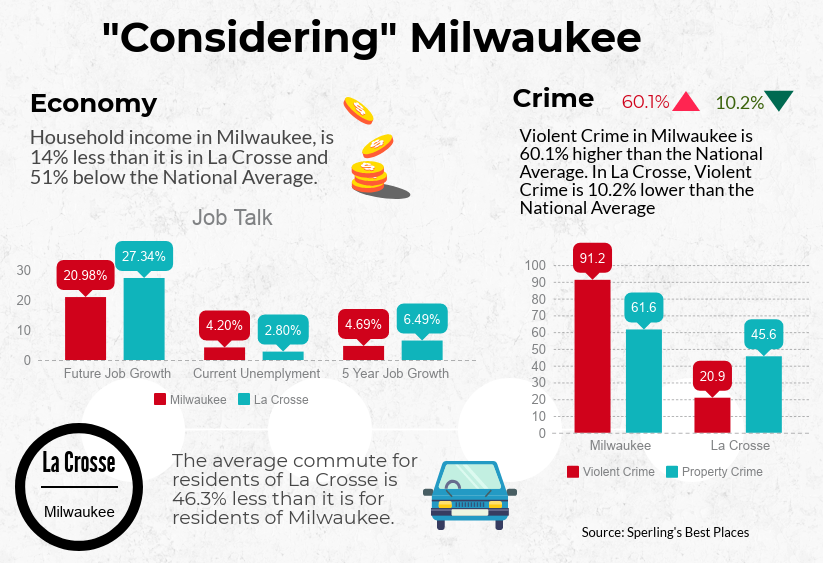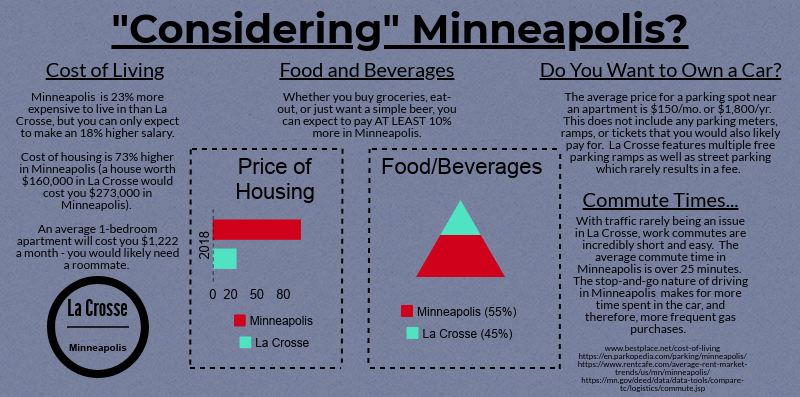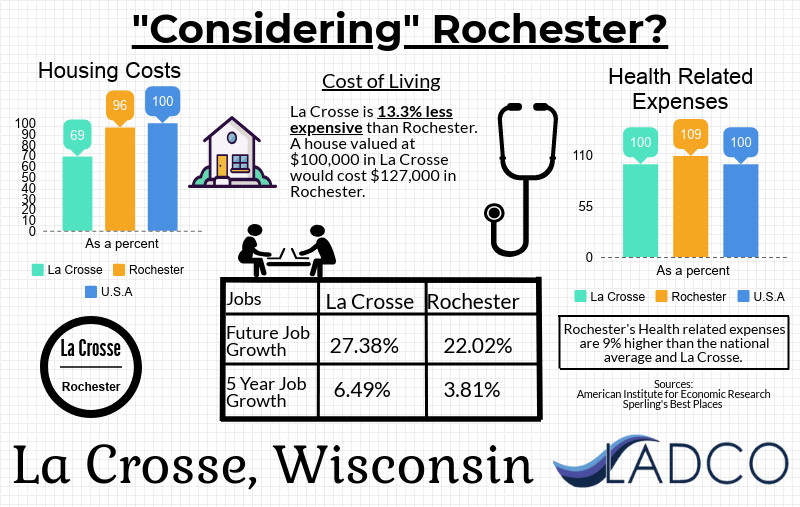Employment Opportunities
Check out the resources below to get started on your employment search.
On-campus Employment
Academic Year (Domestic Students)
On-campus Federal Work Study Employment
Federal work study provides part-time jobs for students with financial need, allowing them to earn money to help pay education expenses. Qualifying students work on campus and earn at least the current federal minimum wage. Total work study award depends on when you apply and your level of financial need. If you are interested in getting a federal work study job while enrolled at Viterbo, make sure to apply for aid early. Funds are limited. The program is administered by the financial aid office and open positions are listed on Handshake at the beginning of fall and spring semester.
To find work study postings on Handshake
- Log into the system using your Viterbo email and password.
- Click "Jobs" from the top menu.
- Choose "On-campus" from the menu below the search bar.
- Review positions with (Work Study Eligible) in the position title.
- Apply for the positions you're interested in following the instructions in each posting.
- Once hired, your supervisor will complete your Work Authorization Form.
To be awarded federal work study, a student must:
- have financial need as determined by filing the Free Application for Federal Student Aid (FAFSA) each year.
- request to be awarded work study when completing the FAFSA.
Current students who have been awarded federal work study for the upcoming year, will receive information regarding job placement in late July/early August.
Students wishing to change or add a position after the school year has begun, should contact the financial aid office.
On-campus Non-work Study Employment
There are a variety of positions available on campus that do not require work study eligibility. Postings are available in Handshake in the "on-campus" category of "Jobs." Look for postings that do not stipulate work study eligibility. Some common on-campus employment opportunities are:
- Fine Arts Center Event Staff - fill out the Qualtrics Survey to apply.
- Aramark Food Service. Aramark hires for the cafeteria, the POD convenience store in the Student Union, Einstein’s Bagels, and catering.
- Office of Residence Life. Academic year or summer resident assistant positions. (Applications open November of each year for the academic position and February for summer positions).
- Recreation and Leadership. The Department of Recreation and Leadership hires a variety of staff members to assist with recreational programs, and Mathy Center facility operations.
- Voyagers tour guide positions with Admissions
- Follette, the Viterbo University bookstore
- Phone-a-thon Callers positions with Institutional Advancement
(email Alyssa Gostonczik if you would like your on-campus non-work study position included in this list)
Academic Year (International Students)
International students can work on campus, up to 20 hours per week during the academic year. International students are not eligible for work study, so on-campus jobs are limited during the academic year. At Viterbo, the on-campus jobs available to new students are:
- Fine Arts Center Event Staff - fill out the Qualtrics Survey to apply.
- Aramark Food Service. Aramark hires for the cafeteria, the POD convenience store in the Student Union, Einstein’s Bagels, and catering.
International students who will be returning to Viterbo can apply for:
- Office of Residence Life. Academic year or summer resident assistant positions. (Applications open November of each year for the academic position and February for summer positions).
- Recreation and Leadership. The Department of Recreation and Leadership hires a variety of staff members to assist with recreational programs, and Mathy Center facility operations.
- Voyagers tour guide positions with Admissions
- Follette, the Viterbo bookstore
- Phone-a-thon Callers positions with Institutional Advancement
Summer Semester (All Students)
Over the summer, all on-campus jobs are funded through Viterbo rather than federal work study, so any undergraduate or graduate students can apply for any on-campus job. These include part-time administrative assistant positions, staffing the Mathy recreation center, copy center, grounds, and cleaning crews. These jobs are advertised through Handshake on the Career Services website. During the summer, all students can work up to 40 hours per week. On-campus positions are not open to alumni.
Avoiding Fraudulent or Scam Position Postings
If you suspect a posting you encounter through the Handshake database or your Viterbo email is fraudulent, please email careers@viterbo.edu.
Warning Signs
- Postings that involve your bank account or personal credit card information, buying gift cards, cashing/processing checks, wiring or transfering money, or paying up front to work at home.
- Postings for personal assistants, mystery shoppers, workers who have to repack or ship items from home, pet sitters or models, especially with organizations you can't verify with a web search, online reviews, or the Better Business Bureau (BBB).
- Postings with bad spelling or grammar.
- The main email address is a Gmail, Hotmail, Yahoo, etc. account. Note: many small businesses use these platforms, but use of a generic email should encourage you to do additional research.
- Lack of "normal" hiring steps (resume, interview, job offer etc.).
- The business address is residential.
- You're asked to conduct meetings or work in a private residence.
- You have to rent or provide your own equipment.
- A big salary for little to no work or experience required.
Research Employers
- Use Handshake, Glassdoor, Yelp, social media sites, and an internet search to research the employer/company and their business practices before applying.
- Ask Viterbo Career Services staff members, faculty, friends, family members, and other students about their opinion of the organization.
Protect Yourself
- Before sharing your social security number with an employer, do your due diligence. Most employers will not ask for your number until you have an official meeting with HR.
- Exercise caution with a prospective contact at companies you are not familiar with, especially if they email or message you with unsolicited job offers with no legitimate job description or are outside the United States (different from a recruiter messaging on LinkedIn or Handshake).
- Never:
- wire money or send gift cards to a potential employer or on their behalf
- cash checks or money orders on someone's behalf
- provide credit card or bank account number or completing financial transactions over the pohne.
Already Sent Information?
- As long as your resume/application didn't include your social security number, bank info, or a photo, there is a low risk of compromised privacy. If your application/resume did include this info:
- Contact the police - either Viterbo (608-796-3911 or 608-780-1582) or the non-emergency number for your local police (608-785-5962 in La Crosse) as they will conduct an investigation regardless of the location of the scammer.
- If you sent money - contact your bank or credit card company immediately to alert them.
- Online incident - File an incident report with the Computer Crime and Intellectual Section of the U.S. Department of Justice for call the FTC at 1-877-382-4357.
- If the posting was on Handshake or via Viterbo email, email careers@viterbo.edu
If you have a negative experience with a legitimate employer, you can raise a flag on Handshake and email careers@viterbo.edu for assistance.
Suggestions adapted from the University of Washington Career & Internship Center, Division of Student Life.
Local and National Job Sites
- Handshake: Viterbo's online job and internship board. The systems allow you to create a customizable profile and upload a resume which is searchable.
- "Odd Jobs" tab in the Viterbo app
- Part-time jobs within 3-17 minutes of campus
- Google Careers
- Indeed
- ZipRecruiter
- Monster
- Accessdubuquejobs
- Viterbo University Todd Wehr Memorial Library Career Resources
Industry-specific and Remote Job Sites
Education Sites
- Wisconsin Education Career Access Network (WECAN)
- Wisconsin Department of Public Instruction
- CESAjobs
- WISEdash
- Minnesota Department of Education
- Teach Iowa
- Teacher-Teachers
- UNI Overseas Placement Service for Educators
Federal and State Government Sites
- Nationwide Federal Jobs
- Go Government Career Guides
- Careers in the Department of Defense
- Pathways: for Students and Recent Graduates to Federal Careers
- Working for the Federal Government: Part 1 and Part 2
- Wisconsin Government Jobs
- Minnesota Government Jobs
- Iowa Government Jobs
- Nationwide State Government Jobs
- Tim Donahue at the Upper Midwest Environmental Sciences Center on French Island has graciously agreed to consult with students about the federal job application process. Students working on an application may contact Tim by email at tdonahue@usgs.gov or at 608-781-6206.
Human Resources Sites
Marketing and Communications Sites
Non-Profit Sites
- Idealist
- Jobsthathelp.com - Wisconsin Site
- Minnesota Council of Nonprofits
- Foundation List
Nursing Jobs
- Health Workforce Connector (with loan repayment)
- Liquid Compass
Psychology Jobs
Public Service Sites
Social Work Sites
Remote
- Candor - Who's frozen and who's hiring
- FlexJobs
- Just Remote
- Remote.co
Sports
- NAIA Career Center
- PBEO.com - Minor League Baseball
- Teamworkonline.com - sports jobs, careers and internships in the NBA, NFL, NHL, MLB, MLS, NASCAR, LPGA and more
Career Fairs
Viterbo Career Fairs
Wisconsin Educational Recruitment Fair
Questions for Recruiters
- Does your organization have an internship program?
- Does your organization plan on hiring new graduates?
- What types of opportunities are available for interns/new grads at your organization?
- What do you look for when selecting interns or new graduates?
- What do you anticipate will be the timeline for applications for internships? for new graduates?
- How do new graduates apply to your organizations (e.g., for advertised positions not requiring experience? For new graduates positions only? For the residency program only?)
- What type of new grad orientation/residency program does your organization offer?
- Are you accepting resumes today?
- Would you mind taking a look at my resume to let me know if it includes the type of information you prefer?
- Can you tell me about the interview process for new graduates in your organizations?
- What are some of the positive aspects of being an employee in your organization?
- What are some new programs/challenges in your organization?
- What advice would you give to an intern or new graduate applying at your organization?
Company Research
 Unlimited access to Glassdoor's information about salaries, employees' opinions about employers, sample interview questions asked by employers, and job postings.
Unlimited access to Glassdoor's information about salaries, employees' opinions about employers, sample interview questions asked by employers, and job postings.
 Unlimited access to Vault's information about organizations, internships, schools, majors, salaries, and career resources.
Unlimited access to Vault's information about organizations, internships, schools, majors, salaries, and career resources.
Viterbo University Todd Wehr Memorial Library Career Resources
Learn how to make LinkedIn work for you to build a professional network, establish your digital brand, stay up-to-date in your industry, and more. Our Career Services staff show you how to build an eye-catching profile, whether or not you have relevant work experience. A LinkedIn profile allows you to provide a more in-depth look at your personal brand and accomplishments than a resume does. The basic presentation covers the top 5 "must-haves" for a profile and the Advanced version gives examples of how to make the most of LinkedIn's features.
Networking
Networking is one of the best ways to feel out a potential internship, career, or professional path. Think of networking as making professional friends instead of a big, scary room with people in stuffy suits, and weak punch. You can network virtually or in-person any time, any place, as long as you have a goal and at least one other person to communicate with. Here are some of the ways we suggest you "make professional friends." Remember you are not asking for a job or internship, you are making connections.
- Attend the Speed Mock Interview event at Viterbo every November and March. More info available on our events page.
- Attend the Fall Career, Internship, and Graduate School Fair at Viterbo every fall. More info available on our events page.
- Attend the WorkForce Career and Internship Fair every February at Wisconsin State Fair Park. More info available on their events page.
- Build your LinkedIn and visible social network profiles so they are a professional, error-free representation of your brand. Student LinkedIn guide.
- Connect with family members, friends, classmates, colleagues, supervisors, professors, staff, and Viterbo alums on LinkedIn via the "See alumni" button.
- Join local professional networks like Young Professionals via the La Crosse Area Chamber of Commerce
Cost of Leaving La Crosse
Job Offer Evaluation
Receiving a job offer means you've made it through the toughest part of the job search. The hard work you put into your application, interview, and thank you note have paid off. Now comes an important decision. Just because you've been offered a job, doesn't mean you have to accept it. Here are some pros and cons to keep in mind when you're making a decision.
- The People – Your boss, bosses' boss, coworkers, etc. Think about how they treated you during the interview process. Their attitude toward you then will likely reflect how they'll treat you as a regular employee.
- The Environment – Consider the company type (corporation, agency, non-profit, or starts up) and the physical location. Make sure you have looked at your commute, lunch options, fitness studios, etc.
- The Mission – You should care about what the organization is trying to achieve. Mission and values are an important part of your Viterbo education and make a difference in your post-graduation plans too.
- The Benefits – In addition to wages, are health/dental/eye insurance offered and what is the cost? Will you have a flex spending account, vacation time, retirement savings? Consider the additional financial expenses.
- The Stability - Do some research on the company's recent success and hiring activities. It's a good sign if they have been operating steadily in the last couple of years.
- The Money - Money isn't everything; salary is a small part of work satisfaction but still something to consider (see salary negotiation, below).
- The Timing - Is there another job offer you're more excited about that you're still waiting on?
- Your Gut - Does the organization feel like a good "fit" for you?
12 Things you Must do Before Accepting a Job Offer - The Muse
Salary Negotiation
Golden rule: Whenever possible, don't volunteer any information about salary expectations or salary history on your resume, in a cover letter, or during a job interview. It's to your advantage to discuss salary issues after the employer has already decided that he or she really wants you. Here are more tips from NCDA on how to dodge the salary question.
Negotiation is not merely saying, "I want more money." You will need to answer several questions for yourself before you'll be ready to enter into the negotiation process.
- What is the salary range of the job that the employer and/or the industry have established?
- What is the salary range for individuals with my education, accomplishments, skill set, and experience in the geographical region of the position?
- What is the lowest salary that I will consider?
- What is the salary range I would be satisfied with? Select a range with an upper amount a little higher than you expect to get so there is some negotiating room for the employer.
- What special contributions can I make to the organization that potentially make me of more value to the employer?
- What other "perks" can I negotiate besides salary (time off, spending account, telecommuting, specific equipment or office supplies, professional training, signing bonus)?
Salary Negotiation Resources
American Association of University Women (AAUW) - free salary negotiation workshop for women
Pay Equity Resources - equal pay for work of equal value
Glassdoor - search company salaries, ratings, reviews, and interview questions
LinkedIn - salary by job title and location
Payscale - use the salary survey and "What am I worth" survey
Cost of Living Calculator - compares the cost of living between cities
Wisconomy - Wisconsin economic and labor market information
Novoresume - Salary negotiation tips 101
Salary Negotiation Do's and Dont's
- Do know your worth. Make sure you've done your research ahead of time and know the market value for a specific type of position, for someone with your experience, and for the geographic area of the country.
- Do avoid discussing specific numbers as long as possible, ideally until an offer has been made. Your goal is to delay negotiations until you have been offered the position. You negotiate from a position of strength if you know the employer wants to hire you.
- Do get the offer in writing.
- Don't bring up salary and benefits before the employer does. This gives employers the wrong impression. They may conclude it's all you're really interested in.
- Try to get the employer make the first offer. If the employer asks you first, "How much money do you need?" you can respond in a number of ways:
- "My salary expectations are based on job requirements and responsibilities. I'd like to hear more about the position."
- “At this point, money isn’t my main issue at this point. I expect a competitive salary, but I’m more interested in finding a meaningful and challenging position."
- "Salary is negotiable. I'm interested in hearing more about the challenges and expectations of this position before entertaining your best offer."
- "What salary range do you have in mind?"
- "What salary range do you pay positions with similar requirements?"
- "Tell me what you have in mind for a salary range."
- Don't inflate your current earnings in an attempt to be paid more.
- Don't feel obligated to accept the first offer. And do negotiate a salary if the first offer is inadequate.
- Don't have a self-righteous attitude and don't make demands.
Handling Requests for Salary Requirements/Salary Histories in Job Applications
- You can say "salary is negotiable" and show them you're flexible.
- You can say that you "prefer to discuss the salary in the interview" and add that it's negotiable.
- You could give your salary history, but, if it's too high, you run the risk of being screened out. Or, if it's too low, you run the risk of the employer knowing your salary and paying you less because of it or assuming your past salary indicates you are not ready for a more demanding position.
- Lastly, you can ignore the request entirely, but this also runs the risk of being used to screen you out of the interviews.
Turning Down a Job Offer
- Call rather than send an email. A conversation, complete with tone, will go over better than a short email. It doesn’t have to be a long conversation, just enough to keep the connection positive and express your thanks for getting the offer.
- Offer a referral. Dear Hiring Manager, Thank you so much for the generous offer to join your team. As we discussed, I’ve admired the company for a number of years, and am a proud endorser of its products. However, after further consideration of where I currently am in my career, I will, unfortunately, have to decline, as much as it pains me to do so. That being said, I have a few connections I think would be great for the role and would be happy to send their information along to you. I would also love to stay in touch via LinkedIn and have already started following you on Twitter. If there’s anything else I can send along to you, please let me know. Thanks again, The Person Who Can’t Believe They're Saying No Thanks.
- If you must send an email, a simple “Thanks, but no thanks” will suffice. Dear Hiring Manager, Thank you so much for taking the time to meet with me over the last few weeks. It was a pleasure to learn more about all the great work you and the team are up to at The Company I Am About to Turn Down. As flattered as I am to receive an offer to join your team, I will, unfortunately, have to decline. If there are any questions I can answer for you, please let me know. Warm regards, The Candidate Who Just Said No Thanks.
Source: 3 Keys to Turning Down a Job Offer Without Burning Bridges
Leaving a Job
- Give plenty of notice. Two-weeks is standard but earlier is better. Schedule a face to face meeting with your boss to deliver the news.
- Keep it under wraps. It will be tempting to share the (exciting) news with your co-workers. However, wait until you've spoken directly with your boss so you can control the tone and delivery of the news.
- Be prepared for a counteroffer. Your boss might not be ready to let you go so be ready to entertain a counteroffer (if you're interested).
- Draft a resignation letter. Telling your boss in person is expected, but HR will still need an official letter with your late date of employment.
- Read your contract. Check the length of your obligation, any fees you may need to pay back to the organization, and the policy on sharing trade secrets.
- Tell your co-workers and clients. Tell those you're close to personally and send a mass farewell email to the rest. Including your LinkedIn profile URL is a good way to stay connected. Also, set an autoreply on your work email.
- Finish the projects you're working on. Complete what you can and leave detailed notes for the rest so someone else can pick up where you left off.
- Request an exit interview. Even if it's not a requirement of your organization, use the time to be thankful and share what you've learned.
- Keep a positive attitude and keep working. You may be leaving but work will go on at the organization, don't be the person co-workers resent because you're "getting out."


